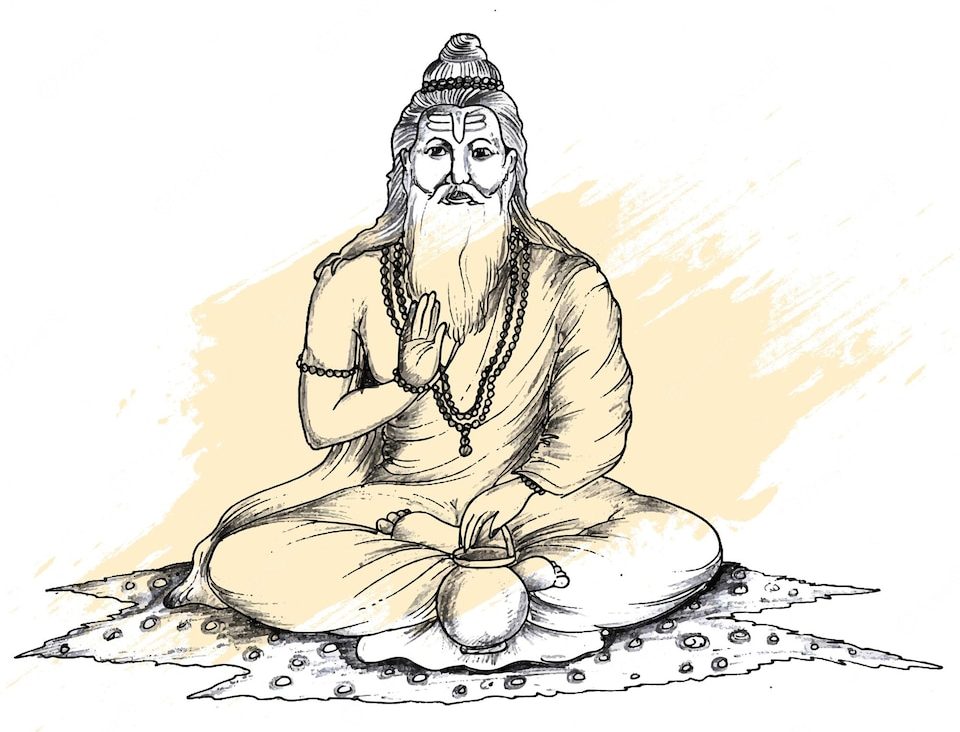
Maharishi Kanva
The Sage behind the Shakuntala Story
Introduction:
Maharishi Kanva, an esteemed sage from the ancient era, holds a significant place in Hindu mythology and literature. Renowned for his association with the Shakuntala story from the Mahabharata, Maharishi Kanva played a crucial role as the foster father of Shakuntala. This article explores the life and contributions of Maharishi Kanva, delving into his early life and education, his career as a sage and teacher, his relationship with gods, his other disciples, his contributions to Hindu culture, his enduring legacy, an overview of his contribution to Hinduism, the books associated with him, and a conclusion highlighting his significance.
Early Life and Education:
Maharishi Kanva’s early life and education are intertwined with legends and folklore. Although specific details are scarce, it is believed that he received his education in the Vedic scriptures and spiritual practices from his gurus.
Career as a Sage and Teacher:
Maharishi Kanva’s career as a sage and teacher is characterized by his profound spiritual wisdom and guidance. He was revered for his deep understanding of the Vedas and his ability to impart spiritual knowledge to his disciples. As a teacher, he played a pivotal role in shaping the lives of his students and imparting moral and ethical values.
Relationship with Gods:
While Maharishi Kanva’s specific relationship with gods may not be extensively documented, his spiritual practices and devotion to the divine were integral to his role as a sage. His deep reverence for the cosmic forces and his adherence to spiritual disciplines facilitated his connection with the divine realm.
Other Disciples:
Maharishi Kanva had disciples who sought his guidance and wisdom. While their names and contributions may not be prominently recorded in scriptures, they were fortunate to have received the teachings of such an esteemed sage.
Contributions to Hindu Culture:
Maharishi Kanva’s contributions to Hindu culture are primarily associated with the Shakuntala story. The tale of Shakuntala, immortalized in the Mahabharata and the Abhijnanasakuntalam by Kalidasa, showcases the sage’s role as the foster father of Shakuntala. This narrative explores themes of love, devotion, and the consequences of forgotten relationships.
Legacy:
Maharishi Kanva’s legacy lies in his association with the Shakuntala story and its enduring impact on literature and performing arts. The tale of Shakuntala, known for its portrayal of human emotions and relationships, continues to be appreciated and cherished by audiences worldwide. Maharishi Kanva’s compassionate nature and his role as a mentor and guardian to Shakuntala symbolize the importance of familial ties and the consequences of forgotten connections.
Overview of Contribution in Hinduism:
Maharishi Kanva’s contribution to Hinduism lies in the preservation and propagation of the Shakuntala story. This tale has been celebrated as a work of art and literature that portrays the complexities of human relationships, the power of love, and the repercussions of forgotten bonds. The story reflects the moral values and ethical dilemmas that have been an integral part of Hindu culture for centuries.
Books Written by Him:
While Maharishi Kanva’s direct authorship may not be attributed to specific texts, his association with the Shakuntala story has inspired countless adaptations, retellings, and theatrical performances.
Conclusion:
Maharishi Kanva, the sage behind the Shakuntala story, occupies a significant place in Hindu mythology and literature. His role as the foster father of Shakuntala highlights the importance of familial relationships and the consequences of forgotten bonds. Maharishi Kanva’s association with the Shakuntala story continues to inspire artists, writers, and audiences, serving as a testament to the enduring power of his wisdom and the timeless relevance of his teachings. Through his connection with Shakuntala, Maharishi Kanva’s legacy resonates as a reminder of the complexities of human emotions, the significance of familial ties, and the timeless lessons embedded within Hindu culture.
Editor – Kaalchakra Team
[ Note – Before Concluding anything as a Finale, Please Go through Original Scriptures of Vaidik Literature Written in Sanskrit and Also with Meaning of That time of Language. Because English is a Limited language to Explaining the Deeper Knowledge of Vaidik Kaal. ]
